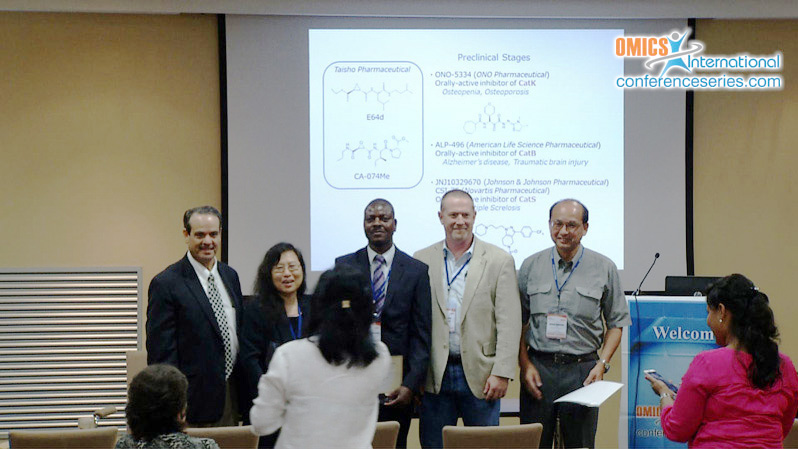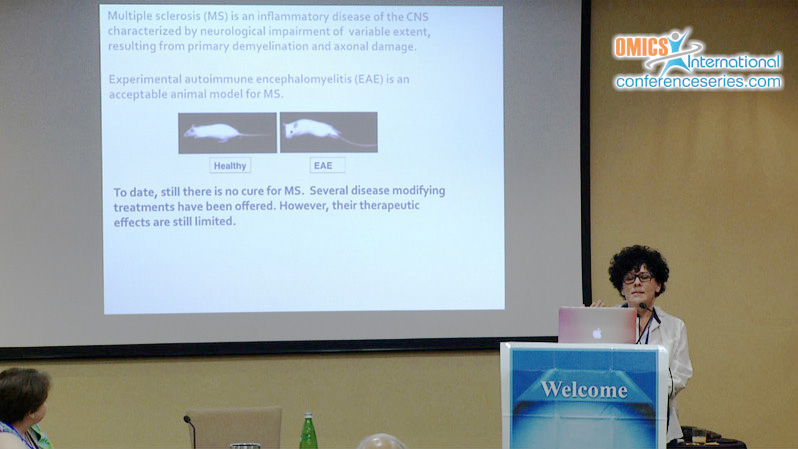
Nathali Kaushansky
The Weizmann Institute of Science, Isreal
Title: Modulation of MS-like disease by regulatory CD11c+CD11b+Gr1+ Myeloid-derived Dendritic cells induced by Antigen-specific therapy with synthetic multi epitope protein
Biography
Biography: Nathali Kaushansky
Abstract
It is now widely accepted that the pathogenic autoimmunity inMS, as well as in other organ-specific autoimmune diseases, can bedirected against several target antigens. We recently showed that a concomitant ‘‘multi-epitope-targeting’’ approach,using a specifically designed artificial multi-epitope protein (Y-MSPc) is required foreffective antigen-based immune-specific therapy of organ-specificautoimmune diseases associated with complex and dynamicpathogenic autoimmunity, such as MS.Y-MSPcwas superior to peptide(s) in concomitantly downregulating pathogenic T-cellsreactivity against multiple myelin antigens/epitopes, via the induction of effective and longer lasting peripheral regulatorymechanisms (cytokine shift, anergy, and Foxp3+ CTLA4+ regulatory T-cells . Moreover, we identified a tolerogenic myeloid DC subset in theCNS and spleen of EAE mice playing an important role in immunoregulation process in EAE, following Y-MSPc treatment . Our results demonstrate that immune tolerance induced by Y-MSPc is associated by increase of CD11c+CD11b+Gr1 myeloid derived dendritic cells in the CNS and spleen. These myeloid DCs exhibited immunoregulatory characteristics, including increased production of IL-4, IL-10 and TGF-b but reduced IL-12. Furthermore, CD11c+CD11b+Gr1 DCs were also capable of inhibiting the proliferation of PLP139-151-specific T cells in vitro and significantly suppressed ongoing EAE upon adaptive transfer. In addition, adaptive transfer of CD11c+CD11b+Gr1 DCs derived from YMSPc treated mice to EAE induced mice resulted in remarkably upregulation of CD4FOXP3 regulatory cells. Taken together, these findings suggestthat i.v.administration of the multi epitope protein (Y-MSPc) results in maintaining peripheral tolerance and reduce EAE incidence by an increase in tolerogenic CD11c+CD11b+Gr1 .


